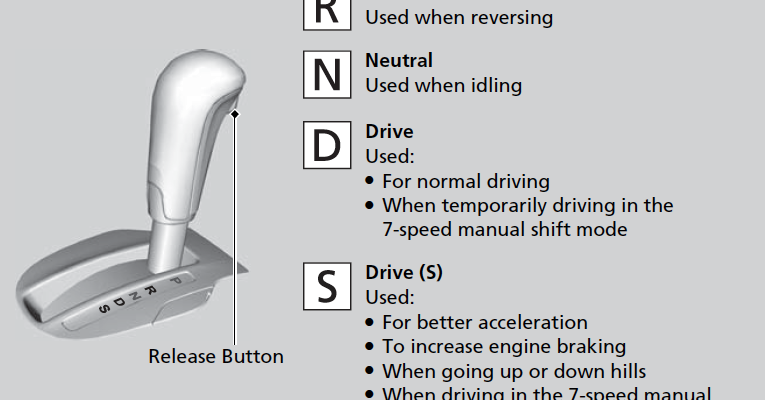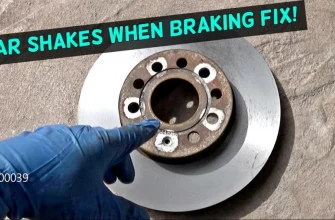Most automatic transmissions have a setting labeled “S.” But what does it mean, and when should you use it? The “S” typically stands for “Sport.” This mode alters the vehicle’s behavior to provide a more engaging and responsive driving experience.
How “Sport” Mode Works
In “Sport” mode, several changes occur:
- Shift Points: The transmission holds gears longer, shifting at higher RPMs. This keeps the engine in its powerband, delivering quicker acceleration.
- Throttle Response: The throttle becomes more sensitive. Even slight pedal inputs result in quicker engine response.
- Downshifting: The transmission is more eager to downshift when braking or decelerating, providing engine braking and preparing for quicker acceleration out of corners.
- Steering Feel (in some vehicles): Some vehicles with electronic power steering may increase steering weight for a more connected feel.
When to Use “Sport” Mode
Consider using “Sport” mode in these situations:
- Spirited Driving: When you want a more exciting and responsive driving experience on winding roads or when accelerating quickly.
- Merging onto Highways: For quicker acceleration to safely merge into fast-moving traffic.
- Passing: For quicker acceleration to safely overtake other vehicles.
- Hilly Terrain: To maintain power and prevent excessive gear hunting on uphill climbs.
Potential Drawbacks
While “Sport” mode can be enjoyable, it also has some drawbacks:
- Reduced Fuel Economy: Holding gears longer and increased throttle sensitivity lead to higher fuel consumption.
- Increased Engine Wear: Operating at higher RPMs can potentially increase engine wear over time.
- Harsher Ride (in some vehicles): Some vehicles with adaptive suspension may stiffen the ride in “Sport” mode.
Is “Sport” Mode Right for You?
Experiment with “Sport” mode to see if you enjoy the enhanced responsiveness. Be mindful of the potential drawbacks and use it judiciously to balance performance and efficiency. For everyday commuting, “Drive” mode is usually the most efficient and comfortable option.
Beyond the “S”: Other Performance-Oriented Modes
While “S” is the most common label, some vehicles employ different names for similar performance-enhancing modes. You might encounter:
- “Sport+”: An even more aggressive version of “Sport,” often disabling traction control or stability control systems partially.
- “Track”: Designed for closed-course driving, maximizing performance with minimal electronic intervention.
- “Dynamic”: A customizable mode allowing drivers to tailor settings like steering, throttle response, and suspension independently.
- Paddle Shifters: Many vehicles with automatic transmissions also include paddle shifters, allowing drivers to manually select gears for a more engaging experience, even in “Drive” mode.
Important Considerations
- Consult Your Owner’s Manual: Your vehicle’s owner’s manual provides specific details about the “Sport” mode and other driving modes available.
- Tire Condition: Ensure your tires are in good condition, especially when using “Sport” mode aggressively, as it can increase tire wear.
- Road Conditions: Be extra cautious when using “Sport” mode in adverse weather conditions like rain or snow, as the increased throttle sensitivity can make the vehicle more prone to wheelspin.
- Listen to Your Engine: Pay attention to the engine’s sound and feel. Avoid over-revving the engine, even in “Sport” mode.
The “S” on your automatic shifter offers a way to unleash your vehicle’s performance potential. By understanding how “Sport” mode works and when to use it, you can enjoy a more engaging driving experience while remaining safe and responsible on the road. Remember to consider the potential drawbacks and always prioritize safe driving practices.
Ultimately, the best way to determine if “Sport” mode is right for you is to experiment with it in a safe and controlled environment, paying attention to how it affects the vehicle’s behavior and your driving experience. Happy driving!










Well written and easy to understand. A great explanation of Sport mode.
I love using Sport mode on winding roads! It makes driving so much more fun.
Great explanation of Sport mode! I always wondered exactly what it did.
This article helped me understand the S mode in my car. Thanks!
Clear and concise. Thanks for clarifying when Sport mode is most useful.
Informative article. I appreciate the breakdown of how Sport mode actually works.
Very helpful article. I
Excellent summary! I
Good points about the potential drawbacks. I hadn